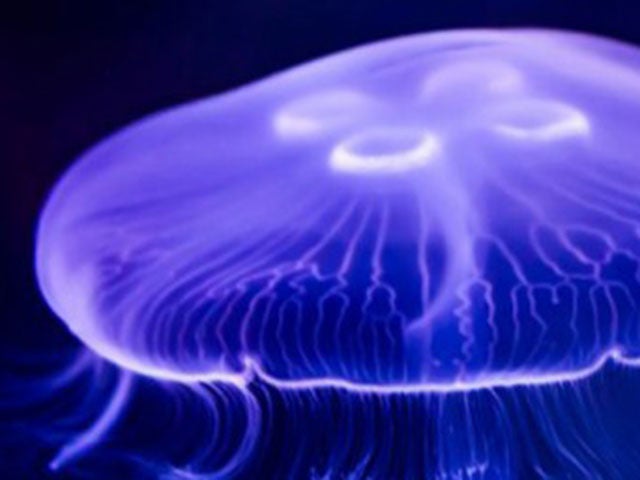Field Labs Only
INTEGBI 103LF (2011-08-18 - 2099-12-19)
Introductory survey of the biology of invertebrates, stressing comparative functional morphology, phylogeny, natural history, and aspects of physiology and development. Laboratory study of invertebrate diversity and functional morphology, and field study of the natural history of local marine invertebrates.
INTEGBI 103LF (2010-08-19 - 2011-08-18)
INTEGBI 102LF (2012-01-10 - 2099-12-19)
The relationship of the main plant groups and the plant communities of California to climate, soils, vegetation, geological and recent history, and conservation. Laboratory will also include at least two Saturday field trips and focus on main plant groups and major plant families in California, and use of keys to identify introduced and especially native pteridophytes, conifers, and flowering plants of the state.
INTEGBI 102LF (2010-08-19 - 2012-01-10)
A survey of California Floristics focusing on identification and taxonomy of the main plant genera and major plant families, as well as the use of keys to identify native and introduced ferns, conifers, and flowering plants of the state.
Ichthyology: An Introduction to the Scientific Process Through Research on Fishes
Christopher Herbert Martin, Jennifer Hoeflich
Class #:24955
Units:4
Instruction Mode: In-Person Instruction
No Open Seats

Did you know that our closest living fish relative can build a cocoon and hibernate for three years? Or that some fish make a living by eating scales? This class will conduct publishable research in evolution, ecology, and behavior by doing actual science on fishes. We will attempt to answer unknown questions about the evolution of fascinating adaptations in diverse groups of fishes in both the laboratory and field.
Ichthyology: An Introduction to the Scientific Process Through Research on Fishes
Christopher Herbert Martin
Class #:24954
Units:4
Instruction Mode: In-Person Instruction
No Open Seats

Did you know that our closest living fish relative can build a cocoon and hibernate for three years? Or that some fish make a living by eating scales? This class will conduct publishable research in evolution, ecology, and behavior by doing actual science on fishes. We will attempt to answer unknown questions about the evolution of fascinating adaptations in diverse groups of fishes in both the laboratory and field.
Mammalogy with Laboratory
Erin Voss, Anaid Cardenas Navarrete
Class #:23764
Units:5
Instruction Mode: In-Person Instruction
Open Seats
7 Unreserved Seats

An advanced course in the biology of mammals. Topics covered include elements of modern mammalian biology such as morphology, physiology, ecology, and behavior. For all topics, the traits that define mammals are emphasized, as is the variation on these themes evident within modern mammalian lineages. Laboratory and field explore the biology of modern mammals. Laboratories use the extensive collections of the Museum of Vertebrate Zoology to introduce students to mammalian diversity in a phylogenetic context.
Mammalogy with Laboratory
Michael Nachman
Class #:23763
Units:5
Instruction Mode: In-Person Instruction
Open Seats
7 Unreserved Seats

An advanced course in the biology of mammals. Topics covered include elements of modern mammalian biology such as morphology, physiology, ecology, and behavior. For all topics, the traits that define mammals are emphasized, as is the variation on these themes evident within modern mammalian lineages. Laboratory and field explore the biology of modern mammals. Laboratories use the extensive collections of the Museum of Vertebrate Zoology to introduce students to mammalian diversity in a phylogenetic context.
Biology and Geomorphology of Tropical Islands
Emily Lam, Ixchel Sarahi Gonzalez Ramirez, Emily Katherine Chen
Aug 24, 2022 - Dec 09, 2022
12:00 am
Off Campus
Class #:23203
Units:15
Instruction Mode: In-Person Instruction
Open Seats
7 Unreserved Seats

In this class, students study the natural history and evolutionary biology of island terrestrial and freshwater organisms and their communities, and of marine organisms in the coral reef and lagoon systems. The students also learn about the geomorphology of volcanic islands, coral reefs, and reef islands. Features of island biogeography are illustrated with topics linked to subsequent field studies on the island of Mo’orea, French Polynesia. The course trains students as independent scientists, as students develop, conduct, and communicate independent research projects on a topic of their choice.
